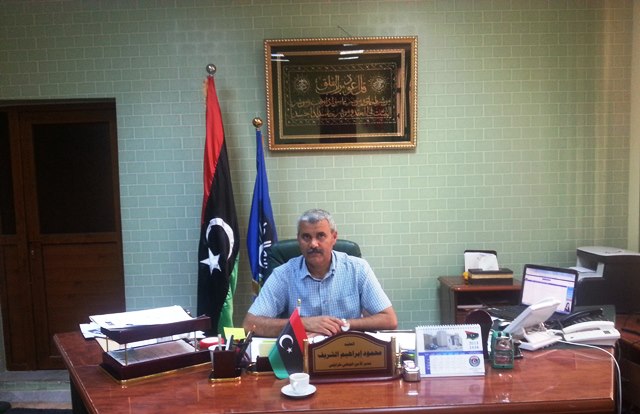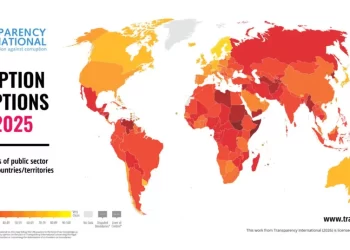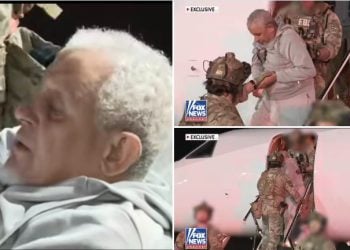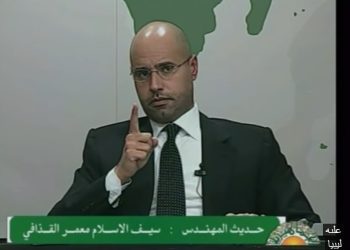By Umar Khan.

Tripoli, 1 September 2013:
Tripoli police are so short of weapons and ammunition that they are having to buy them . . .[restrict]on the black market, said the capital’s police chief.
Colonel Mahmoud Sharif, head of the National Security Directorate of Tripoli told the Libya Herald that this demonstrated the lack of support that the government is giving his force.
“Kalashnikovs are not typical police weapons” said Sharif, “We have told the Interior Ministry that we need pistols. They have given us just ten. And that is it. We don’t even have enough ammunition, so I bought it from the black market and gave it to men, at least in the headquarters.”
Sharif blamed the slow progress of Tripoli policeagainst the wave of crime, on the inability of Prime Minister Ali Zeidan’s government and the General National Congress to provide the necessary support to allow normal police work.
He said he has the willing men and a security plan for the city. However the lack of support from the state has rendered the whole police force ineffective. He also said that the current security situation is a result of incapable government officials who are not serious about solving the police’s problems.
“We are receiving very little support from the government and it restricts us from doing any work.” said Sharif, “They are paying our monthly salaries on time and think it is enough. But there are a whole lot of other requirements that they are totally ignoring.”
He said that his directorate has forwarded several proposals and equipment wish lists to the Interior Ministry and spoken to a range of officials, but always with same negative results.
“Despite the regular assurances, nothing changes on the ground. It has been more than 14 months since we sent a proposal to have monitoring cameras installed on the roads to improve security. Nobody even bothered to reply to it.”
He blamed the criminals released en masse by the former regime during the revolution for most of the criminal activities around the country.
“Qaddafi released roughly 18,600 criminals from prisons and with such a heavy presence of guns on the streets, they are now wreaking havoc in many different cities.”
Sharif said that Tripoli’s police not only need the financial, technical and weapons support from the government, but also a clear authority on the use of force.
“My men are scared.” he said, “They go in to check a complaint and a man comes out with a Kalashnikov – our men don’t even have ammunition. The government don’t want us to act and they only pass resolutions for show. When we asked them to let us go in and clear the Interior Ministry when it was closed by some with heaps of sand at the main gate, we were told to do nothing”.
While funding and the proper equipment were major requirements, he explained: “We cannot do anything without proper authorisation from the government. The main problem is our bureaucracy. They still use the old laws and especially the financial laws, which make a simple request take a very long time for approval.”
Recalling his last meeting with prime minister Ali Zeidan, in Ramadan, Sharif said that one of the problems is the quick departure of Interior Ministers. He said, “Each time I meet the Prime Minister, the end result is the same. Nothing changes. Also the continuous appointment and resignation of interior ministers is also causing us more trouble. It seems the ministers and the deputies are incapable of solving our problems. They don’t have the expertise to understand and solve these security issues.”
Sharif added: “I have asked for money to repair the damaged police stations but there is nothing. They have to understand that solving security issues needs the swift release of funds to achieve the required results in time. If I need a thousand Libyan dinars today and you give it to me over six months, than either it’s of no use or the delay has caused the required amount to swell to one hundred thousand.”
Sharif said that the National Security Directorate of Tripoli regularly informs the public about the security in the city, through its Facebook page and monthly magazine, which he said is free and available in all kiosks and is now in its tenth edition.
He also said that the capital’s police receive a lot of complaints through the social media. “People send us messages about their problems and we try to solve them all. Recently a woman from Tunisia contacted us through Facebook and informed us about her missing cousin. We contacted her and after some investigation we raided a location and retrieved this man.”
Sharif said that he is aware of the weapons stalls on Rasheed Street but there isn’t much that his men can do in current circumstances.
“The sale of these weapons is prohibited but we don’t have the power to go in and stop them. This will change once the Interior Ministry approves our request for weapons and funds”.
He also added that Interior Ministry is also working on an internal plan to have more coordination between police and the Joint Force. “We expect it to be passed in two or three days and then we will go in to clear the Street (Rasheed) from all those weapon dealers.”
Sharif said security is improving gradually. He explained: “My assessment is different from a member of the public, because I’m a security person. It is not very satisfying at the street level but security definitely is improving, although the speed is very slow.” [/restrict]






